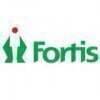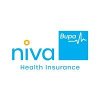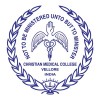Medical Officer
100+ Medical Officer Interview Questions and Answers

Asked in Medi Assist India

Q. 1)TYPES OF MALARIAL PARASITE WITH NAME 2)WHAT IS TPA & WHAT IT DOES 3)ALARMING SIGN OF DENGUE 4)HOW WILL YOU CLINICALLY DISTINGUISH DENGUE & MALARIA 5)CARDIAC MARKER's NAME 6)FULL FORM-CAG PTCA 7)CATARACT 8) IM...
read moreMedical Officer interview questions on malaria, dengue, cardiac markers, genetic disorders, etc.
Types of malarial parasite: Plasmodium falciparum, Plasmodium vivax, Plasmodium malariae, Plasmodium ovale
TPA (Tissue Plasminogen Activator) is a protein that dissolves blood clots
Alarming signs of dengue: severe abdominal pain, persistent vomiting, bleeding from nose or gums, difficulty breathing
Clinical differentiation of dengue and malaria: dengue has sudden onset, high fever, s...read more

Asked in Fortis Healthcare

Q. How do you deal with a patient having hypoglycemia?
To deal with a patient having hypoglycemia, provide immediate glucose intake and monitor their blood sugar levels.
Administer oral glucose or intravenous dextrose to raise blood sugar levels quickly.
Monitor the patient's blood sugar levels frequently to ensure they stabilize.
Identify and address the underlying cause of hypoglycemia, such as adjusting medication dosage or timing.
Educate the patient and their caregivers about recognizing and managing hypoglycemic episodes.
Create...read more
Medical Officer Interview Questions and Answers for Freshers

Asked in National Health Mission

Q. The vaccination schedule? How many vacancies are there in schedule? Tell me something about pcv vaccine
The vaccination schedule includes various vaccines recommended for different age groups. PCV vaccine protects against pneumococcal disease.
The vaccination schedule is a series of recommended vaccines for individuals of different age groups.
The schedule includes vaccines for diseases such as measles, mumps, rubella, hepatitis, and more.
PCV vaccine, or pneumococcal conjugate vaccine, is recommended for infants and young children to protect against pneumococcal disease.
PCV vacci...read more

Asked in Medi Assist India

Q. Types of fever?examples of congenital diseases?drugs for cancer, HTN?types of surgery?upper limb lower limb bones?what is downs syndrome?types of Hernia?
A medical officer interview question covering various medical topics.
Types of fever include: intermittent, remittent, continuous, and hectic
Examples of congenital diseases include: Down syndrome, cystic fibrosis, and congenital heart defects
Drugs for cancer include: chemotherapy, immunotherapy, and targeted therapy
Drugs for hypertension include: ACE inhibitors, beta blockers, and diuretics
Types of surgery include: open surgery, minimally invasive surgery, and robotic surgery
U...read more

Asked in Medi Assist India

Q. 1)Defination of all as per Insurance Guidelines and policy Terms and conditions. 2)Need to thorough about all exclusion. 3)Need to know about changes as per new guidelines of IC. 4)All about Angioplasty,stent ....
read moreQuestions related to medical officer role including insurance guidelines, exclusion, new IC guidelines, angioplasty, stent, auditing, cancer and anti-cancer drugs.
All definition as per insurance guidelines and policy terms and conditions
Thorough knowledge of all exclusions
Awareness of changes as per new guidelines of IC
Understanding of angioplasty and stent procedures
Knowledge of auditing and its types
Understanding of cancer and anti-cancer drugs

Asked in Niva Bupa Health Insurance Company

Q. CAD,DIFFERENCE B/W CABG & PTCA,BILIRUBIN IS USED TO DIAGNOSE?? PERMANENT EXCLUSION,2 YEAR WAITING PERIOD EXAMPLE , DOCUMENTS REQUIRED FOR SETTLEMENT , KYC NEEDED WHEN , URIC ACID TEST IN WHICH CONDITION
Medical Officer interview questions on CAD, CABG, PTCA, bilirubin, exclusion, settlement, KYC, and uric acid test.
CAD stands for Coronary Artery Disease.
CABG is a surgical procedure to bypass blocked coronary arteries.
PTCA is a non-surgical procedure to open blocked coronary arteries.
Bilirubin is used to diagnose liver function and jaundice.
Permanent exclusion refers to medical conditions that permanently disqualify a person from a job or activity.
A 2-year waiting period exam...read more
Medical Officer Jobs




Asked in Medi Assist India

Q. what is cholecystectomy,what is normal pulse.......
Cholecystectomy is the surgical removal of the gallbladder. Normal pulse rate is between 60-100 beats per minute.
Cholecystectomy is usually performed to treat gallstones or inflammation of the gallbladder.
It can be done through open surgery or laparoscopic surgery.
Normal pulse rate varies depending on age, physical activity, and overall health.
A resting pulse rate of over 100 beats per minute or under 60 beats per minute may indicate a health problem.

Asked in Medi Assist India

Q. Define catract Can you tell about appendicitis Common diseases where we claim insurance Road traffic accident? What are the things you should know when you claim for road traffic accidents
Cataract is a clouding of the eye's natural lens that affects vision.
Cataract is a common age-related eye condition
Symptoms include blurry vision, difficulty seeing at night, and sensitivity to light
Treatment involves surgery to remove the cloudy lens and replace it with an artificial one
Share interview questions and help millions of jobseekers 🌟


Asked in Tata Steel

Q. If a patient presents with loss of consciousness, what is your initial course of action?
Check RBS and patient history, give IV glucose if RBS is low, treat patient symptoms and send for investigation.
Check patient's blood sugar level and medical history
If RBS is low, give IV glucose
Treat patient's symptoms
Send patient for further investigation

Asked in National Health Mission

Q. What is preterm and term ? Difference between infant and neonate
Preterm refers to babies born before 37 weeks of gestation while term refers to babies born between 37 and 42 weeks of gestation. Neonate refers to babies in the first 28 days of life while infant refers to babies between 28 days and 1 year of age.
Preterm babies are at higher risk for complications such as respiratory distress syndrome, jaundice, and infections.
Term babies are considered full-term and are less likely to have complications.
Neonates require special care and mon...read more


Q. Which organism and class causes Dengue Fever?
Dengue fever is caused by the dengue virus, which belongs to the Flaviviridae family.
Dengue fever is caused by the dengue virus
The virus belongs to the Flaviviridae family
There are four different serotypes of the virus
The virus is transmitted by Aedes mosquitoes
Symptoms include high fever, headache, joint and muscle pain, and rash

Asked in Seven Hills Hospital

Q. What investigations should be done for fever, and what is its differential diagnosis?
Investigations for fever include blood tests, imaging studies, and cultures. Differential diagnosis includes viral, bacterial, and fungal infections.
Blood tests: complete blood count, blood cultures, inflammatory markers
Imaging studies: chest X-ray, CT scan, ultrasound
Cultures: urine, sputum, stool, wound
Differential diagnosis: viral infections (e.g. influenza), bacterial infections (e.g. pneumonia), fungal infections (e.g. histoplasmosis), autoimmune diseases (e.g. lupus), m...read more
Asked in Healthcare India

Q. What would you do when a patient comes with loss of consciousness in the ER if the vitals are stable?
I would perform a quick assessment and order appropriate diagnostic tests to determine the cause of loss of consciousness.
Check airway, breathing, and circulation
Perform a neurological exam
Order diagnostic tests such as CT scan, MRI, or EEG
Consider possible causes such as stroke, seizure, or head injury
Administer appropriate treatment based on diagnosis

Asked in Paramount

Q. Types of fever their clinical presentations , complications. Congenital diseases vs genetic diseases with example. How to deal with patients in emergency with high fever and dehydration.
Types of fever, their clinical presentations and complications. Congenital vs genetic diseases with examples. Managing high fever and dehydration in emergency patients.
Types of fever: intermittent, remittent, continuous, relapsing
Clinical presentations: fever, chills, sweating, headache, muscle aches, fatigue, cough, sore throat, rash, joint pain
Complications: dehydration, seizures, delirium, organ failure, shock
Congenital diseases: cystic fibrosis, congenital heart disease, ...read more

Asked in Apollo Hospitals

Q. In emergency management, how do you proceed with a provisional diagnosis?
Provisional diagnosis in emergency management involves rapid assessment and prioritization of symptoms to guide immediate treatment.
Conduct a thorough patient history and physical examination to identify key symptoms.
Utilize triage protocols to prioritize patients based on severity (e.g., ABCs: Airway, Breathing, Circulation).
Consider common emergency conditions (e.g., myocardial infarction, stroke) based on presenting symptoms.
Order necessary diagnostic tests (e.g., ECG, blo...read more

Asked in National Health Mission

Q. Do you know about global development delay?
Global Developmental Delay (GDD) is a condition where a child takes longer to reach developmental milestones.
GDD affects multiple areas of development, including cognitive, motor, speech, and social skills.
It is usually diagnosed in children under the age of 5.
Causes of GDD can include genetic disorders, brain damage, and environmental factors.
Early intervention and therapy can help improve outcomes for children with GDD.
Examples of developmental milestones that may be delaye...read more
Asked in Neyveli Uttar Pradesh Power

Q. Which insulin can be administered intravenously?
Regular insulin is the only type of insulin that can be given via the intravenous (IV) route.
Regular insulin is the only insulin that is soluble and stable enough to be administered intravenously.
Other types of insulin, such as rapid-acting, intermediate-acting, and long-acting insulins, are not suitable for IV administration.
Regular insulin is commonly used in emergency situations or in hospital settings when immediate blood sugar control is required.
Examples of regular insu...read more

Asked in Apollo Hospitals

Q. What types of analyses are used in medicines?
Various analysis types are used in medicines to ensure safety and efficacy.
Pharmacokinetic analysis
Pharmacodynamic analysis
Toxicology analysis
Bioavailability analysis
Bioequivalence analysis
Pharmacogenomic analysis
Clinical trial analysis

Asked in Echs Polyclinic

Q. What are common medical emergency ,which you have encountered in medical set up ,and its management.
Common medical emergencies include cardiac arrest, stroke, anaphylaxis, and seizures.
Cardiac arrest requires immediate CPR and defibrillation
Stroke requires quick assessment and administration of clot-busting medication
Anaphylaxis requires prompt administration of epinephrine and airway management
Seizures require ensuring patient safety and administration of anticonvulsant medication
Other emergencies include respiratory distress, severe bleeding, and diabetic emergencies

Asked in Fortis Healthcare

Q. How do you manage a burns patient?
Managing a burns patient involves assessing the severity of the burn, providing immediate first aid, preventing infection, and promoting healing.
Assess the severity of the burn using the rule of nines or Lund and Browder chart.
Provide immediate first aid by cooling the burn with running water for at least 20 minutes.
Cover the burn with a sterile non-stick dressing to prevent infection.
Administer pain relief medication as necessary.
Ensure proper nutrition and hydration to supp...read more
Asked in Neyveli Uttar Pradesh Power

Q. What is the management of shock?
Management of shock involves identifying the cause, providing fluid resuscitation, administering medications, and addressing underlying issues.
Identify and treat the underlying cause of shock
Provide fluid resuscitation to restore blood volume
Administer medications to support blood pressure and cardiac function
Address underlying issues such as infection or bleeding
Monitor vital signs and adjust treatment accordingly

Asked in Tata Steel

Q. What is the treatment for fever at home when medicine is not available?
Cold sponging is an effective home remedy for fever when medication is not available.
Use lukewarm water and a clean cloth to sponge the body
Avoid using cold water as it can cause shivering and increase fever
Repeat the process every 2-3 hours to bring down the body temperature
Stay hydrated by drinking plenty of fluids
Rest and avoid physical exertion

Asked in Sakra World Hospital

Q. What are the medications that should be administered in an emergency situation for myocardial infarction?
Emergency medications for myocardial infarction include antiplatelets, anticoagulants, and pain relief agents.
Aspirin: Administer 160-325 mg orally to inhibit platelet aggregation.
Nitroglycerin: Use sublingual tablets or spray for chest pain relief.
Morphine: Administer for severe pain and anxiety management.
Anticoagulants: Heparin or low molecular weight heparin to prevent clot progression.
Thrombolytics: Administer within the first few hours to dissolve clots (e.g., alteplase...read more

Asked in Acme Services

Q. What is the line of treatment for myocardial infarction?
The line of treatment for myocardial infarction includes medications, lifestyle changes, and medical procedures.
Immediate treatment with aspirin and nitroglycerin
Thrombolytic therapy to dissolve blood clots
Angioplasty and stenting to open blocked arteries
Coronary artery bypass surgery for severe cases
Lifestyle changes such as quitting smoking, healthy diet, and exercise
Medications such as beta-blockers, ACE inhibitors, and statins
Asked in Zynovia Lifecare

Q. Wht is yr strong point and weak point, wht do y know about pharmaceutical industry, wht is role of medical representative in territory, wht is yr hobby, wht is yr family background
My strong point is attention to detail, weak point is public speaking. I have knowledge of pharmaceutical industry, role of medical representatives, hobbies include reading. Family background is supportive.
Strong point: attention to detail
Weak point: public speaking
Knowledge of pharmaceutical industry
Role of medical representatives in territory
Hobbies include reading
Supportive family background
Asked in Bokaro General Hospital

Q. How would you apply a cast on a hand, and how many layers would you use?
A cast on hand requires padding, wrapping, and securing with plaster. Usually, 2-3 layers are applied.
Clean and dry the affected area
Apply padding to the hand and wrist
Wrap the plaster around the hand and wrist
Secure the plaster with tape or bandage
Apply 2-3 layers of plaster
Allow the plaster to dry for 24-48 hours

Asked in Felix Hospital

Q. A female patient with 7 months of amenorrhea presents to the emergency room with vaginal bleeding. How would you manage and diagnose this patient?
Manage and diagnose a female patient with 7 month amenorrhea and bleeding per vagina in the emergency department.
Perform a thorough physical examination including vital signs, abdominal examination, and pelvic examination.
Order relevant investigations such as pregnancy test, complete blood count, coagulation profile, and pelvic ultrasound.
Consider differential diagnoses such as ectopic pregnancy, miscarriage, or other gynecological conditions.
Stabilize the patient if necessar...read more

Asked in Christian Medical College

Q. How should one handle a situation if a patient suddenly becomes angry?
Managing an angry patient requires empathy, active listening, and de-escalation techniques to ensure safety and understanding.
Stay calm and composed; your demeanor can influence the patient's reaction.
Use active listening; acknowledge their feelings by saying, 'I understand this is frustrating for you.'
Maintain a safe distance; ensure you are not in a position that could escalate the situation.
Ask open-ended questions to understand the root of their anger, such as, 'Can you t...read more

Asked in National Health Mission

Q. What about the health programs in National health mission
National Health Mission is a government initiative to provide accessible, affordable, and quality healthcare to all citizens.
NHM was launched in 2013 to address the health needs of underserved populations
It aims to reduce maternal and child mortality, prevent and control communicable and non-communicable diseases
NHM includes programs like Janani Suraksha Yojana, National Urban Health Mission, National Rural Health Mission
It also focuses on strengthening healthcare infrastruct...read more

Asked in JK Cement

Q. How would you manage a case where a worker falls from a height?
I will assess the worker's injuries, provide immediate medical attention, stabilize their condition, and arrange for transportation to a hospital if necessary.
Assess the worker's injuries and check for any signs of head, spine, or internal injuries
Provide immediate first aid and medical attention on-site
Stabilize the worker's condition and monitor vital signs
Arrange for transportation to a hospital for further evaluation and treatment
Document the incident and provide necessar...read more
Interview Questions of Similar Designations
Interview Experiences of Popular Companies






Calculate your in-hand salary
Confused about how your in-hand salary is calculated? Enter your annual salary (CTC) and get your in-hand salary


Reviews
Interviews
Salaries
Users










